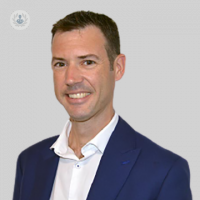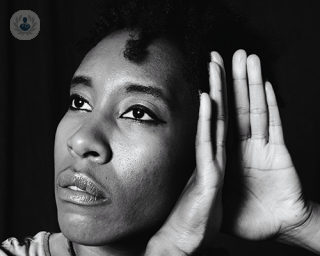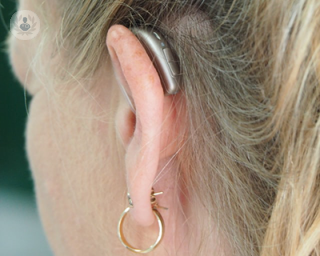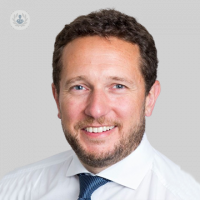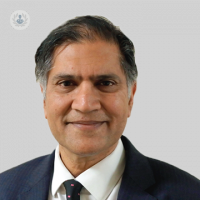Cochlear Implants
Mr Peter Monksfield - Otolaryngology / ENT
Created on: 11-13-2012
Updated on: 10-02-2023
Edited by: Conor Dunworth
What are cochlear implants?
Cochlear implants are small electronic devices that help people hear. They are usually an option for patients with inner-ear damage who do not benefit from hearing aids. A cochlear implant works by bypassing the damaged sections of the ear by transforming sound signals into electrical signals that stimulate the auditory nerve. A cochlear implant is not the same as a hearing aid, since it is implanted through surgery. This prosthesis replaces the function of damaged parts of the middle ear (cochlea).
There are many types of cochlear implants. However, the majority consists of two parts: an internal part that is placed in the skull through a surgical intervention and an external part that is located behind the ear.
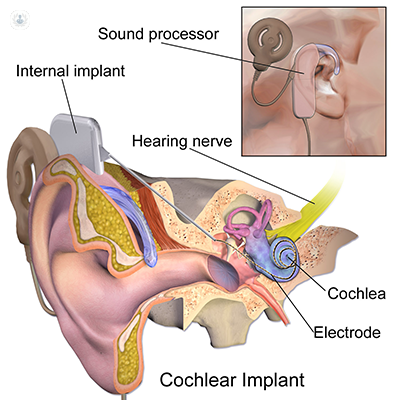
Why are cochlear implants used?
Cochlear implants are created for people who have damaged the hair cells in the cochlea. Although they do not restore normal hearing ability, they can help deaf or hard-of-hearing people to better understand speech. As a result, cochlear implants can improve the quality of life for some patients. Both children and adults can benefit from cochlear implants. Results from a cochlear implant can consist of:
- Hearing speech without relying on visual cues, such as reading lips.
- Ability to listen in a noisy environment.
- Ability to hear the television and have telephone calls.
- Ability to locate where sounds have come from.
How are cochlear implants installed?
An incision behind the ear is made where a small dip is made for the internal device. A hole is made in the cochlea through which the electrode from the internal device is inserted.
Preparation for cochlear implants
A cochlear implant is not suitable for everyone. Requirement for being eligible for a cochlear implant include:
- The patient must be completely deaf or almost deaf in both ears and get little improvement with the hearing aids.
- Good motivation is key as having a cochlear implant is a process with rehabilitation and eventual integration into the hearing world.
- A good understanding of cochlear implants and realistic expectations of what they can and cannot do.
Before the procedure, you may need to stop certain medications and avoid food and drink. Surgery is performed under general anaesthesia.
Care after the cochlear implant is inserted
In some cases, patients must stay hospitalised overnight to remain under observation. It is normal after surgery to feel some dizziness, nausea and discomfort. Most return home the following day. The implant won’t be activated for a few weeks following surgery, and when it is, the patient will start working with the specialists to learn to "hear" and process sounds. The patient should follow a rehabilitation with the speech therapist after the placement of the cochlear implant.
